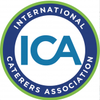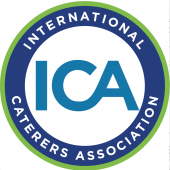‘Tis the Season… for 2023 Budgeting: Four Key Areas for Financial Success‘Tis the Season… for 2023 Budgeting: Four Key Areas for Financial Success
‘Tis the Season… for 2023 Budgeting: Four Key Areas for Financial Success
January 3, 2023

Ah, budgeting season. While chefs may have visions of sugar plums dancing in their heads this time of year, the owners and general managers may have dollar signs dancing in their heads instead. After speaking with many International Caterers Association members over the past few months, we’ve learned that this budgeting season, it’s not all champagne and caviar. The impact of COVID, ever-rising inflation, and a looming recession means budgeting season is more important than ever for profitability and longevity.
The good news, though?
Our most recent ICA Operations Roundtable webinar, hosted by Taylored Hospitality (Frank Christian) and SB Value, covered everything catering business leaders need to know to prepare successfully. Today, we’re sharing key takeaways with actionable tips, so you can design a budget that works for your business in the new year.Understanding what is going to impact your 2023 catering budget
The world still hasn’t quite recovered from the ups and downs of the pandemic, unfortunately. And this is noticeable with all the factors impacting catering businesses in the new year. During budgeting season and throughout the year, you’re going to want to keep your eye on the following:
Employment
While unemployment is down, hospitality roles remain the most difficult to fill. You must be ready to offer higher salaries and incentives to secure talent.
Inflation
Inflation will still be around 8%, and it’s not just food costsincreasing. Health plans could increase up to 25%, gas and diesel will be up 5–10% year-over-year, and electricity will rise 10% or more, no matter where you’re located. The list goes on. With this, it’s important to take a look at your line items and take year-over-year inflation into consideration when setting your budgeted spend.
Consumer spending
The impending recession and inflation have consumer spending wavering. Be sensible with projections and take that into consideration for both social and corporate events.
Creating your budget based upon sales forecasts
So, while you don’t have control over global affairs and the impact they have on your business, you do have full control over your forecasting. So, that’s where your budgeting should begin.
Here’s a simple equation you can deploy to start the foundation of your budget to ensure a healthy net profit:
Sales Projections - Minus Direct Costs (40–50%) = Gross Profit (60–50%)
Gross Profit - Minus Expenses (40–50%) = Net Profit (5–15%)
Let’s break this down a little bit further.
Direct costs can be considered anything related to your events. So, think items like offsite and direct labor, uniforms and laundry, rentals, van and delivery costs, food and beverage costs, event supplies, etc.
Other areas that will depend on your location are payroll taxes and worker’s comp for hourly employees.
Pro Tip: Every time the kitchen or warehouse opens, pennies fly out the window, so gamify these expense categories for your team and provide perks for savings. It’s a great and fun way to keep those costs down!
Next, expenses are considered your overhead administrative expenses that aren’t directly event-related, like rent, salaries, and sales and
marketing spend. The best way to think about this is all the expenses you’re carrying, whether you have events on the books or not, which is important to remember.
Not included in the above, as there aren’t industry standards due to high variability business to business, are line items like legal fees, equipment maintenance, human resources and training, etc.
Designing a fluid, shareable budget for which all stakeholders are accountable and that accounts for every business area is critical. Involve your management team in this projection process. Don’t go it alone! Then, finalize. But that’s not where it ends.
Watching critical numbers for ultimate profitability
But the true key to budgeting is not to set it and forget it.
A budget is meant to be a working document that pivots with the needs of the business. So, the next key is to set reminders to monitor weekly, monthly, and with each payroll cycle so you can analyze where spending is on point and where it needs to be adjusted.
Weekly review
Sales closing & pacing
Post-event analysis including (but not limited to):
– Delivery/setup costs vs. delivery/setup revenue
– Admin fee vs. commissions
– Staff cost & service charge vs.staff revenue & service charge revenueWarehouse labor
Monthly review
Food & beverage costs to revenue
Kitchen & warehouse labor
Warehouse/operations cost to total revenue
In-house costs (food, beverage, staff) to total revenue
Payroll cycle review
Revenue to payroll
Event labor revenue to costs
Admin/overhead labor cost to revenue
Kitchen & warehouse labor
By doing this, you’re able to determine if you’re pacing properly toward your goals, if you need to cut back on labor, or increase minimums to cover food cost. Without doing this, you’re likely leaving money on the table.
Budgeting is the first step toward transforming your profitability
Of ICA members surveyed, only 58% of respondents created a budget for 2022. Yes, budgeting takes work and time. But it’s the key to your inevitable success if you invest those resources! If you can stay informed on the market, base your numbers on accurate projections, share the vision, and analyze often, your budget will be the start of transforming your profitability in the new year.
Sources:
Taylored Hospitality and SB Value, sponsors of the recent ICA operations roundtable are proud members of the ICA. For more information on how to join the ICA and to be notified of future catering industry webinars, events, and education opportunities, visit internationalcaterers.org.




.png?width=700&auto=webp&quality=80&disable=upscale)


